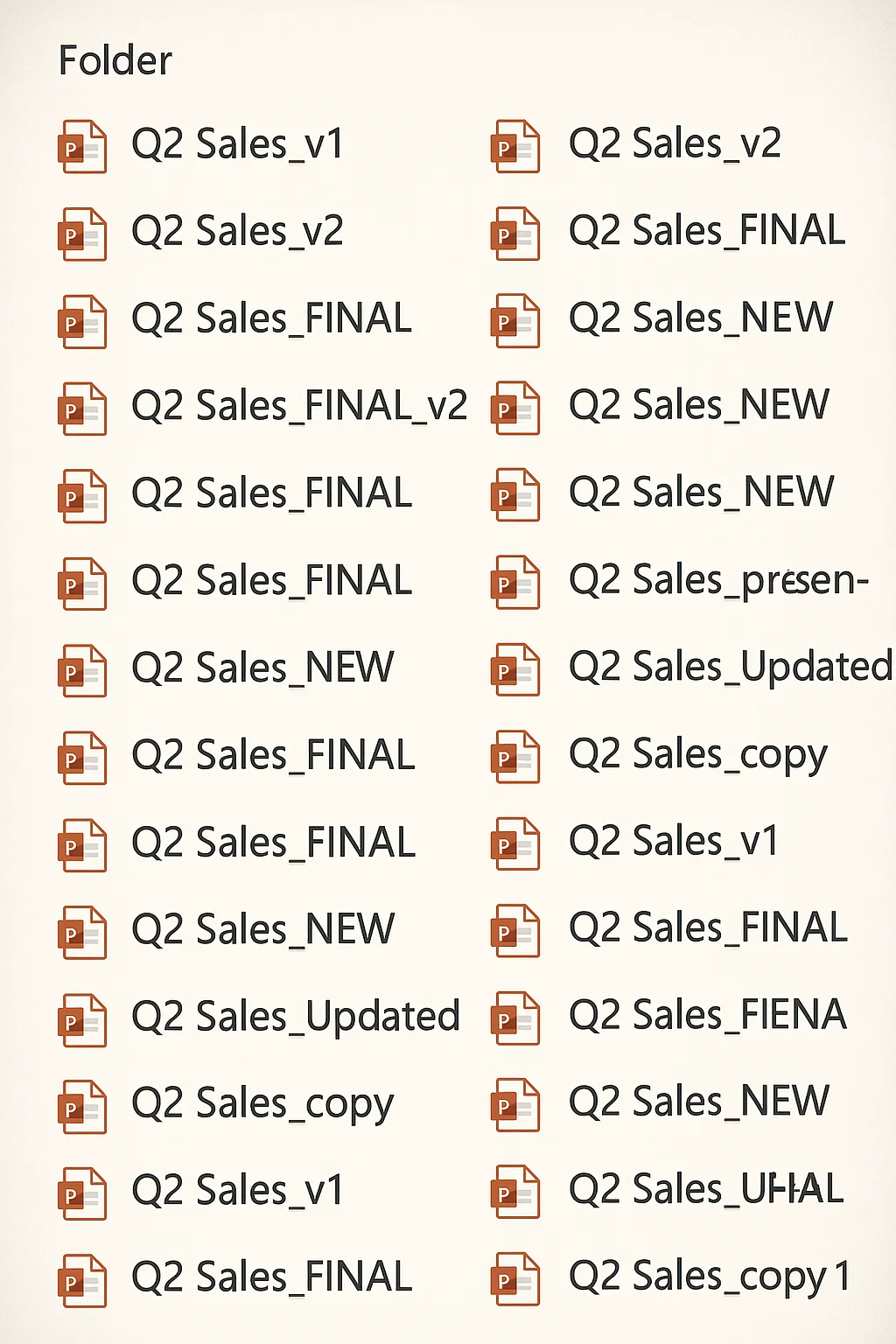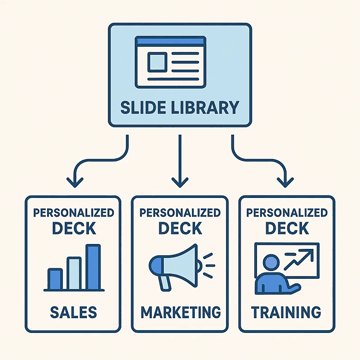Why storing decks like documents is holding your business back
The Hidden Struggle in Enterprise Content Management

Across enterprises worldwide, Microsoft SharePoint has become the digital backbone of document storage and collaboration. Paired with Microsoft 365, Teams, and OneDrive, it creates a powerful, integrated workspace for teams to work together and share files.
But there’s one critical area where this system breaks down: PowerPoint presentations.
Presentations are not just another type of document—they are the lifeblood of business communication. Sales decks, training materials, investor updates, and internal briefings all flow through PowerPoint. And yet, when managed in SharePoint, these presentations fall into a black hole of inefficiency and disorganization.
The Real Problem: Decks Treated Like Static Files
SharePoint is built for storing files—not for managing dynamic presentation content.
In most organizations, here’s how the story goes: A team builds a deck. Another team needs it, tweaks it, reuploads it. Soon, there are five versions of the same deck scattered across folders. Meanwhile, everyone’s unsure which version is current—and the branding’s already off.
This cycle repeats across departments. The result? A bloated SharePoint environment filled with duplicate, outdated, and inconsistent presentations.
Why SharePoint Alone Isn’t Enough for Presentations
PowerPoint presentations aren’t just files. They’re made up of reusable, modular parts—slides, videos, charts, and more. SharePoint, however, lacks presentation-specific capabilities. For example, it doesn’t allow users to:
- Search for individual slides across multiple decks
- Preview and reuse slides modularly
- Apply metadata to individual slides
- Track slide usage across teams and time
Without these functions, valuable content is buried under layers of folders and filenames, invisible to the people who need it.
The Solution: Treat Presentations as Enterprise Assets

Presentation Management offers a smarter approach. Instead of treating decks as whole files, it treats slides as reusable content blocks that can be easily accessed, assembled, and tracked.
With Presentation Management:
- Slides are stored centrally and updated universally
- Users search and assemble presentations from a centralized slide library
- Marketing controls branding and messaging at the source
- Sales teams focus on conversations, not content creation
- Leaders get consistent messaging across the organization
Shufflrr + SharePoint: A Smarter Presentation Workflow
This isn’t about replacing SharePoint—it’s about enhancing it. Tools like Shufflrr integrate seamlessly with SharePoint and Microsoft 365, transforming how presentations are managed and shared.
Here’s how Shufflrr solves the SharePoint PowerPoint Problem:
- Visual Slide Library: Browse, preview, and reuse individual slides with a visual interface
- Metadata Tagging: Tag slides for easy search and categorization
- Drag-and-Drop Deck Building: Assemble new decks in seconds without endless copy-paste
- Live Slide Updates: When the original slide changes, all linked decks update automatically
- Usage Analytics: Track which slides are used, by whom, and how often
By layering Shufflrr on top of SharePoint, companies can finally bring order to presentation chaos—without disrupting their existing Microsoft workflows.
Conclusion: It’s Time to Fix the PowerPoint Problem
Presentations drive the most important conversations in your business. It’s time to give them the attention—and structure—they deserve.
By integrating a presentation management layer like Shufflrr into your SharePoint environment, you can unlock a faster, smarter, and more consistent way to create and share your most important content.